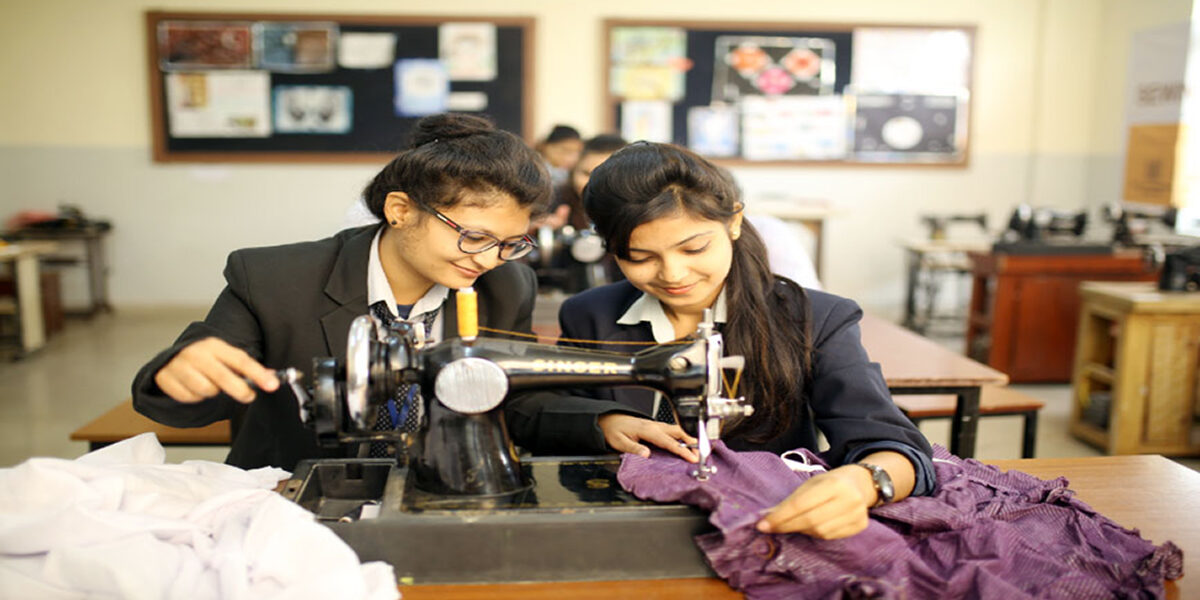B.FTech (Bachelor of Fashion Technology)
BFTech Eligibilty Criteria
Candidates meet the eligibility criteria to pursue a BFTech course if they have completed their Class 12 (in the 10+2 pattern of examination) from any recognised Central/ State Board of Secondary Examination with passing marks. Apart from this, colleges also specify that in order to pursue a BFTech course aspirants should have studied subjects like Physics, Chemistry and Mathematics at their 10+2 level.
Further, candidates who have pursued three or four years diploma programme in any branch of Engineering which is recognised by AICTE or a State Board of Technical Education are also eligible to apply for a BFTech course.
Required Skillset for BFTech
BFTech as a course requires aspirants to be creative and also possess the required technical skills. In order to pursue a course as well as make a future in the field of fashion technology candidates need to possess the below mentioned skill-set:
| Creativity and artistic taste | Knowledge of equipment |
| Good planning skills | Good marketing skills |
| Good observation | Goal oriented |
| Good communication skills | Innovativeness |
| Good at sketching | Visual imagination |
| Knowledge of market requirements | Eye for detail |
However, BFTech Job Profiles & Recruiters
Since BFTech is combination of a fashion as well as technical course, thus, aspirants can opt to make a career in the Fashion industry or in the Fashion Technology field. Some job profiles that aspirants can pursue after completing a BFTech course are mentioned below:
- Technical Artist: In this job profile one is responsible for deciding how a garment should be stitched and thereafter determine how the end product should be made. A Technical Artist or Designer is responsible for creating a technical package. Thus, a Technical Artist needs to mention sewing details, wash description, points of measurement (or POM), label/ hangtag placement as well as packaging instructions.
- Fashion Merchandiser: In such a job profile one oversees the design as well as aesthetic quality of the store. Fashion Merchandisers perform tasks like working on the store layout, creating displays and stocking merchandise in such a way that it leads to promotion of sales. A Fashion Merchandiser ensures that the physical appearance of the store represents the company’s brand, creates a good customer experience and supports current marketplace trends.
- Pattern Grader: In this job profile one works on a computer wherein he/ she lays out a pattern on a digitising table and tracks its outline with a scanning equipment or a light pen. Thereafter, a pattern grader plots measurements at key points and feeds it into the computer. By doing this Pattern Grader’s adjust the size and proportion of the pattern. After this the Pattern Grader does the necessary quality checks and makes sure that the pattern being produced matches with the original one.
- Fashion Designer: In such a job profile one can either start their own label or join a firm to design clothes for them. A Fashion Designer works on designing different types of clothes such as jackets, jeans, women’s wear, men’s wear, children’s wear, evening wear, knitwear, sportswear, and the likes.
- Fashion Consultant: In such a job profile one helps their clients to develop a wardrobe that promotes their public image. People working in this profession advise others on the latest fashion trends, clothing styles, colours to wear/ avoid and how to do their make-up and hair.
- Fabric Quality Control Manager: In such a job profile one is tasked with the job of determining, negotiating as well as agreeing on in-house quality procedures, standards as well as specifications for the use and production of different fabrics.
- Fashion Marketer: In this job profile candidates can work for clothing companies, boutiques or outlet chains. As a fashion marketer aspirants need to work towards publicising and increasing awareness of a particular brand, designer labels or department stores. So, basically if one chooses such a professional field then they are expected to plan, direct or coordinate marketing policies and programmes, such as determining the demand for products and services offered by a firm and its competitors, and identify potential customers.

